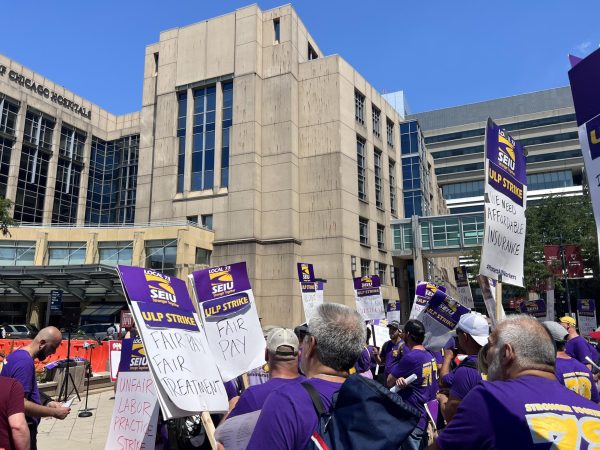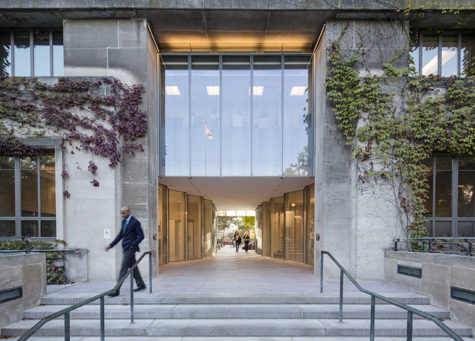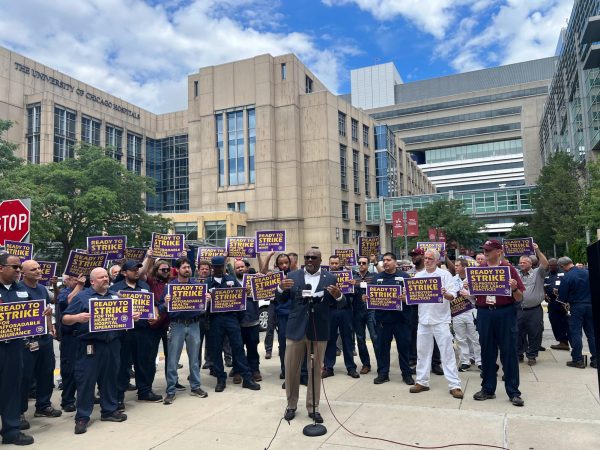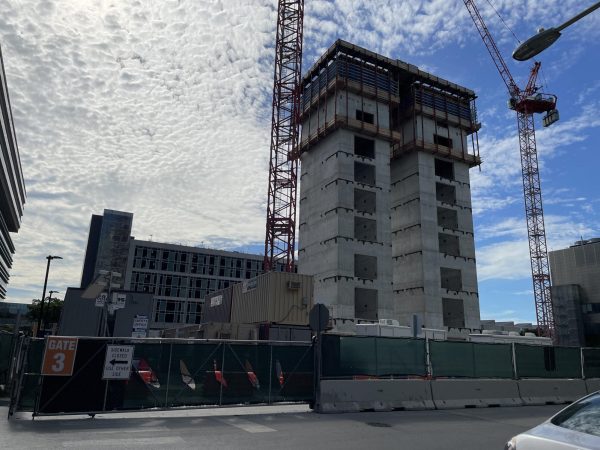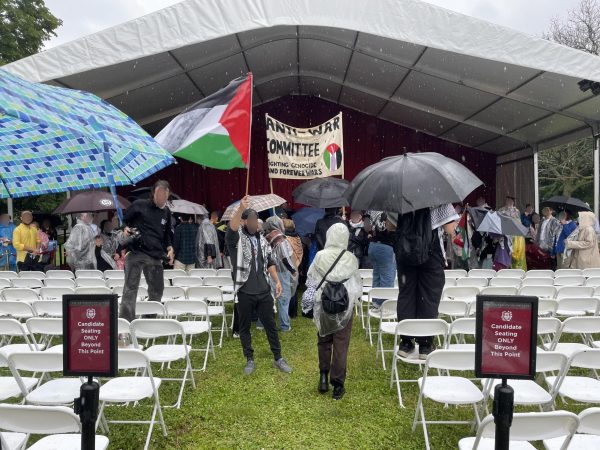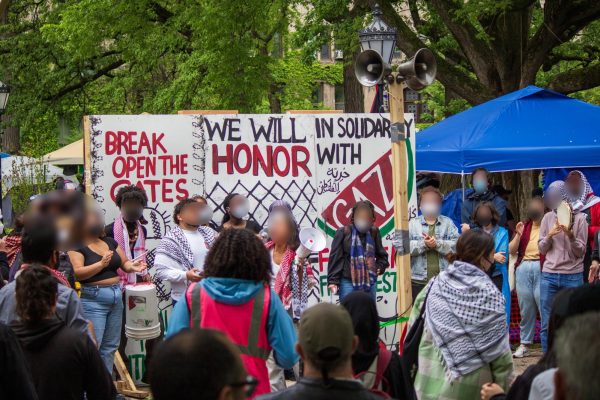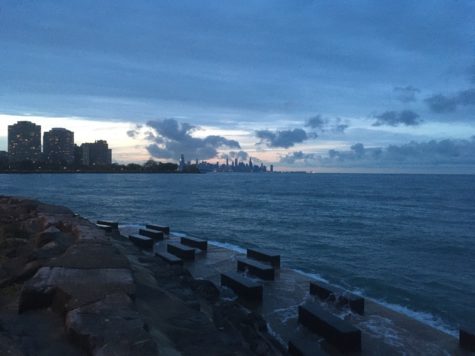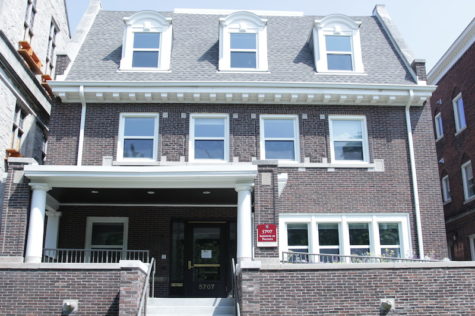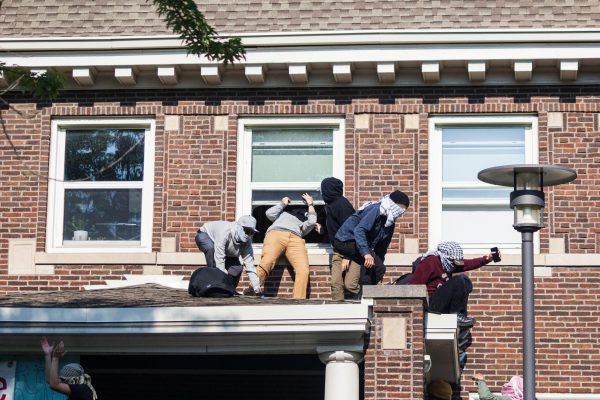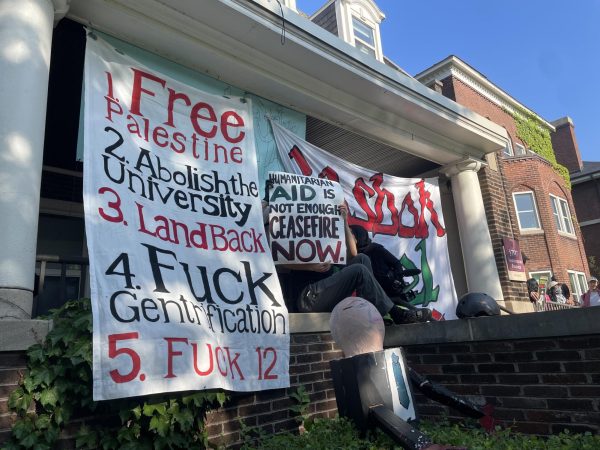UCMed and Legal Aid Chicago Launch $2.6 Million Project to Provide In-Hospital Legal Support to Trauma Patients
The new program, Recovery Legal Care, includes two full-time lawyers working at UCMed’s level 1 trauma center to provide patients injured by intentional violence, and their families, access to civil legal help such as navigating housing services, public benefits, and employment.
The UChicago Medicine campus.
March 2, 2023
In November 2022, the University of Chicago Medical Center (UCM) launched a novel pilot project with $2.6 million in funding called Recovery Legal Care (RLC) in partnership with Legal Aid Chicago. The program embeds two attorneys in the hospital’s level 1 trauma center, where they offer bedside legal assistance to patients recovering from intentional violence. Attorneys help navigate complex legal issues, such as housing or employment, with the goal of allowing patients and families to focus on recovery rather than worrying about their legal needs.
Legal Aid Chicago is a non-profit organization that provides free legal assistance in civil cases to people living in Chicago and suburban Cook County. While RLC attorneys also take on similar legal cases, their placement within a trauma center allows for a different kind of impact.
“Folks may not always think of issues that they’re having as legal issues,” Recovery Legal Care attorney Carly Loughran said. “And so for folks who are experiencing poverty, experiencing community violence, and have just been shot, having us go to them is the difference between them getting legal representation and them not getting legal representation.”
The medical-legal partnership is among the first of its kind in the United States, as RLC is embedded within UCM’s hospital-based Violence Recovery Program (VRP). Established in 2019, the VRP offers trauma recovery services including mental health support to help patients and families deal with the repercussions of intentional violence such as gunshot wounds, stabbing injuries, and assault.
“First and foremost, [the VRP] allows us to be trauma-informed,” Loughran said. “The [VRP] are all violence recovery specialists who administer psychological first aid to folks right after they’ve experienced really traumatic events […] building on the relationship they have and coordinating with them allows us to piggyback on those relationships, and makes the patients, who have been given every reason to mistrust the legal system and lawyers, more receptive to our help. So that’s why this partnership is really unique and really beneficial.”
By working with a team of violence intervention specialists, who also help identify patients that RLC can represent, the two lawyers have an increased capacity for managing caseloads and can build stronger relationships with their clients.
According to Loughran, medical-legal partnerships such as Recovery Legal Care operate by recognizing that many of the medical issues that patients present do not have strictly medical solutions. “A person might be coming in because they’ve experienced a gunshot wound, for example. But what caused that individual to be in the environment that caused the injury doesn’t have a medical solution—there isn’t really a medical solution to violence,” she said.
About 40 percent of adult trauma patients treated at UCM have penetrative injuries, typically inflicted by gunshot wounds or stabbings—a percentage that represents violence which disproportionately affects underprivileged communities of color. Recovery Legal Care aims to address the root causes of that violence in the South Side of Chicago within the space of UCM’s trauma center. On top of the hospital’s role in treatment and trauma-informed care in a patient’s recovery process, RLC acknowledges the unique needs of those patients by providing direct access to legal assistance.
“The majority of the patients we work with are young [Black, Indigenous, Person of Color] men who are vastly underserved by legal aid organizations. We’re hoping that by going to the patients who we know have real needs and working with them in a way that is trauma-informed and tailored to them, that will increase their legal understanding of the environments that they’re operating in, and give them real, tangible solutions,” Loughran said.
Another important aspect of the pilot project is its data collection component, which involves evaluating the program’s own success using legal and electronic health records data, along with ongoing surveys. The research aims to understand how attending to both legal and economic needs benefits a patient’s physical, mental, and social well-being.
“We expect people to have a lower trauma re-entry rate, higher quality of life, better mental health status, lower rates of post-traumatic stress disorder, and things like that,” Dr. Tanya Zakrison, trauma surgeon and principal investigator for the two federal grants supporting the data collection research, said.
Zakrison also explained how the program’s research aims to directly address and combat gaps in government services to South Side communities experiencing violence.
“There’s around 75 percent of the South Side of Chicago who have been victimized directly or witnessed victimization or have a family member who was victimized. They are all qualified for Crime Victim Compensation, yet they never received it,” she said. The Crime Victim Compensation program is an Illinois initiative that offers reimbursement of up to $45,000 for expenses incurred by eligible victims as a result of a violent crime.
The data collection element of RLC opens the door to an impact beyond filling gaps in services such as South Side patients not receiving Crime Victim Compensation. In addition to providing legal aid relating to employment, public benefits, and housing services, its research component collects information about why certain structural inequalities are happening in the first place. The project’s goal is not to bring patients back up to the economic baseline that had put them at risk of violence; instead, it aims to ascertain and provide legal solutions for the societal risk factors that lead to South Side residents’ experiences of violence.
“If we can identify the [risk factors] that occur in a repeated fashion for our patients, we can go back to the government and say: ‘Hey, this is not acceptable, because these health-harming legal needs that are not being met are leading to firearm violence. So please address this,’” Zakrison said.
On top of collecting data that could be used to urge the government to address violations of civil rights pertaining to firearm violence, the research component of RLC functions to understand how the project is working as it is being implemented. Through studying how a medical-legal partnership within a hospital’s trauma center can provide real solutions to violence, Loughran believes RLC can better understand its impact and potentially present its program as a model for other hospitals.
By providing legal solutions to South Side residents within UCM’s trauma center and in coordination with its Violence Recovery Program, the project intends to confront the systems of inequality that contribute to their patients’ experiences of intentional violence.
“This is about addressing a justice gap, which is overlapping with the racial wealth gap,” Zakrison said. “We’re not interested in just plugging the gaps in the system where the government has failed to treat their citizens with dignity and respect. We want to measure those gaps, certainly help patients along the way, and then we want the government to be held accountable for why they would allow such gaps to occur for our trauma patients on the South Side. We want to change the system.”



